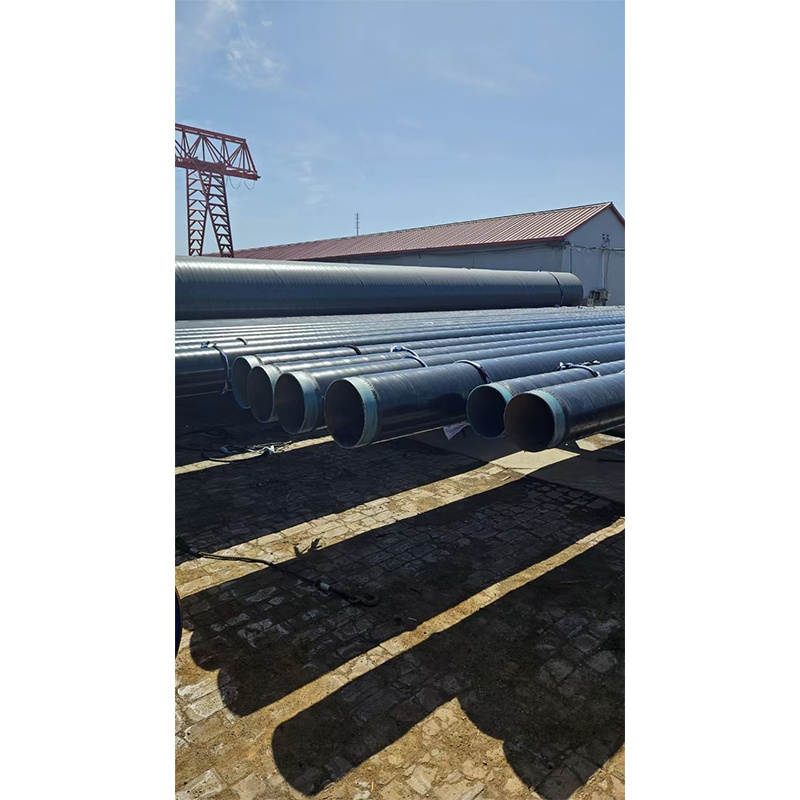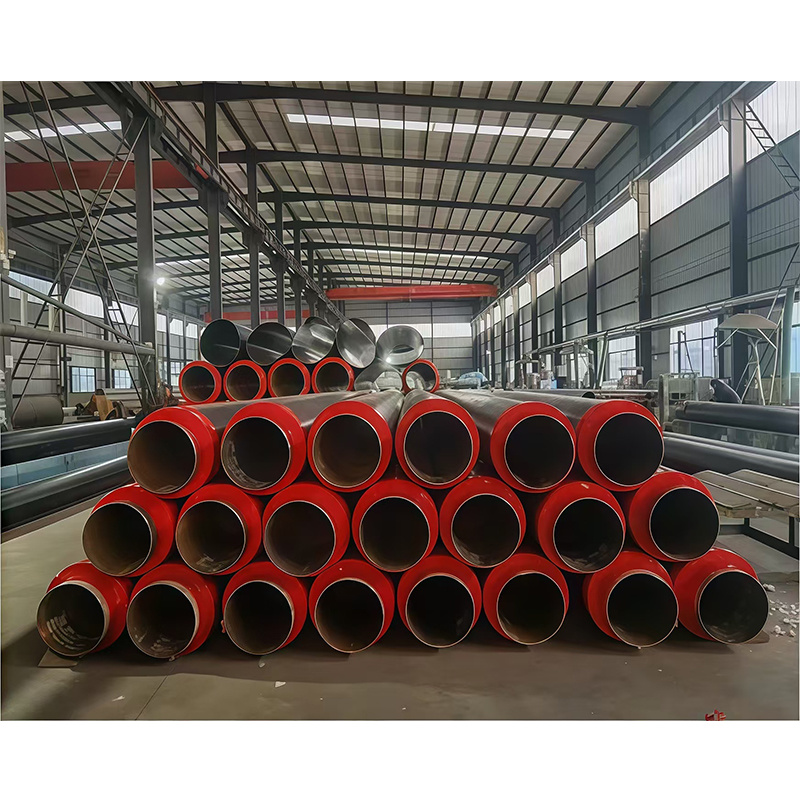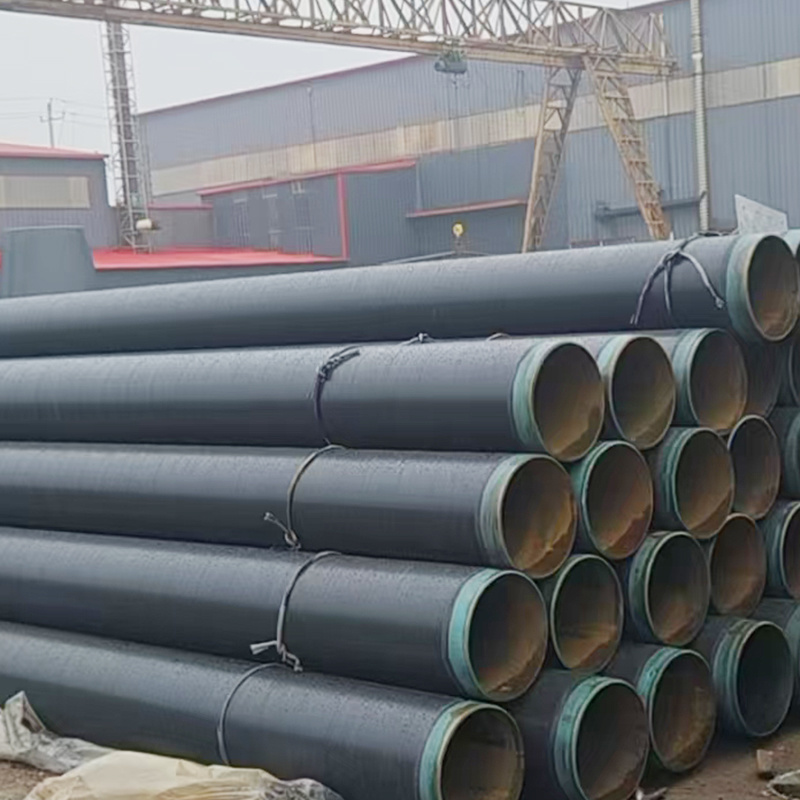Why Choose Insulated Steel Pipes for Cold Water in Construction? An In-depth Analysis of Benefits and Applications
May 21,2025
Why Choose Insulated Steel Pipes for Cold Water in Construction?
Introduction: Understanding Insulated Steel Pipes
Insulated steel pipes are becoming increasingly popular in the construction of buildings and infrastructures, especially for cold water systems. These pipes are designed with an insulating layer that minimizes heat transfer, ensuring that the water maintains its desired temperature wh

Why Choose Insulated Steel Pipes for Cold Water in Construction?
Introduction: Understanding Insulated Steel Pipes
Insulated steel pipes are becoming increasingly popular in the construction of buildings and infrastructures, especially for cold water systems. These pipes are designed with an insulating layer that minimizes heat transfer, ensuring that the water maintains its desired temperature while reducing energy consumption. In this article, we will delve into the multiple advantages of using insulated steel pipes for cold water applications, addressing their efficiency, durability, and cost-effectiveness.
Table of Contents
- Benefits of Using Insulated Steel Pipes
- Energy Efficiency and Cost Savings
- Durability and Longevity of Insulated Steel Pipes
- Types of Insulation Materials Used
- Applications in the Construction Industry
- Installation Process and Considerations
- Maintenance Requirements for Insulated Steel Pipes
- Case Studies: Successful Implementation
- Frequently Asked Questions
- Conclusion
Benefits of Using Insulated Steel Pipes
When it comes to construction, the choice of piping materials can significantly influence the overall efficiency of a water distribution system. Insulated steel pipes offer several benefits that make them an optimal choice for cold water applications:
Enhanced Thermal Performance
The primary advantage of insulated steel pipes is their exceptional thermal performance. The insulating layer prevents heat gain from external sources, ensuring that cold water remains at a stable temperature. This is particularly beneficial in hot climates or industrial settings where temperature consistency is crucial.
Reduced Energy Loss
By maintaining the temperature of cold water, insulated steel pipes minimize energy loss that would otherwise occur through uninsulated materials. This leads to lower operational costs, especially in systems where energy efficiency is a priority.
Energy Efficiency and Cost Savings
In today's construction landscape, energy efficiency is not just a trend; it is a necessity. Insulated steel pipes contribute to significant cost savings over time, making them a smart investment for both residential and commercial projects.
Lower Energy Consumption
The insulation in steel pipes plays a crucial role in reducing energy consumption of mechanical systems. When cold water is transported through insulated pipes, less energy is needed to keep it cool, leading to lower utility bills.
Long-term Financial Benefits
Although the initial investment in insulated steel pipes may be higher than traditional piping materials, the long-term savings on energy costs and maintenance make them a financially sound choice. Building owners and contractors can expect a return on investment within a few years due to reduced operational expenses.
Durability and Longevity of Insulated Steel Pipes
Durability is a critical factor in selecting piping materials for construction projects. Insulated steel pipes are designed to withstand external pressures, temperature fluctuations, and corrosive environments.
Corrosion Resistance
The steel used in insulated pipes is often treated with protective coatings that make it resistant to rust and corrosion. This is particularly important in humid or corrosive environments where traditional piping materials may deteriorate over time.
Structural Integrity
Insulated steel pipes possess high tensile strength, ensuring their structural integrity over extended periods. This durability means fewer replacements and less maintenance, which can be advantageous in large-scale construction projects.
Types of Insulation Materials Used
The efficiency of insulated steel pipes largely depends on the type of insulation employed. Several common materials are utilized for insulation in these pipes:
Polyurethane Foam
Polyurethane foam is a popular choice due to its excellent thermal resistance and lightweight properties. It creates a tight seal around the pipe, preventing any heat loss.
Fiberglass Insulation
Fiberglass is another effective insulation material that is resistant to moisture and offers good thermal performance. Its non-combustible nature also adds an extra layer of safety.
Mineral Wool
Mineral wool provides not only thermal insulation but also soundproofing benefits. It is ideal for environments where noise reduction is a priority.
Applications in the Construction Industry
Insulated steel pipes are versatile and can be used in a variety of applications across the construction industry:
Residential Construction
In residential buildings, insulated steel pipes are commonly used for plumbing systems, particularly for cold water supply. They ensure that homeowners receive fresh and cool water while minimizing energy costs.
Commercial Facilities
In commercial buildings, these pipes are used in HVAC systems, chilled water distribution, and other applications where temperature control is essential. They help maintain efficiency in large-scale operations.
Industrial Applications
Industries that require cold water for processes, such as food processing and pharmaceuticals, benefit greatly from insulated steel pipes. Their durability ensures that they can withstand the demands of harsh environments.
Installation Process and Considerations
The installation of insulated steel pipes requires careful planning and execution to ensure optimal performance.
Site Assessment
Before installation, a thorough site assessment is essential. Understanding the environmental conditions, pressure requirements, and expected temperature fluctuations will guide the selection of insulation and pipe specifications.
Professional Installation
While DIY installation may seem appealing, hiring professionals with experience in installing insulated steel pipes is recommended. Proper installation ensures that the pipes function effectively and reduces the risk of leaks and damage.
Maintenance Requirements for Insulated Steel Pipes
Maintaining insulated steel pipes is relatively straightforward, but regular checks are essential to ensure longevity.
Routine Inspections
Conducting routine inspections can help identify any potential issues, such as wear and tear or insulation degradation. Early detection of problems can save significant costs in repairs.
Cleaning and Upkeep
Keeping insulated pipes clean and free from debris will enhance their performance. Regular cleaning of the exterior and periodic checks of the insulation will ensure that they remain effective over time.
Case Studies: Successful Implementation
Numerous projects have successfully utilized insulated steel pipes, demonstrating their effectiveness in various settings:
Case Study 1: Residential High-Rise
In a recent residential high-rise project, the implementation of insulated steel pipes for cold water supply resulted in a 30% reduction in energy consumption. The building's residents reported improved comfort levels, and the owner enjoyed significant cost savings.
Case Study 2: Industrial Facility
An industrial facility that switched to insulated steel pipes for its cold water systems experienced a dramatic decrease in maintenance costs. The durable material reduced the frequency of replacements, and energy costs dropped by 25%.
Frequently Asked Questions
1. What are insulated steel pipes?
Insulated steel pipes are pipes coated with an insulating layer that minimizes heat transfer, keeping cold water at a stable temperature.
2. How do insulated steel pipes improve energy efficiency?
By preventing heat gain, insulated steel pipes reduce the energy required to cool water, leading to lower utility bills.
3. What materials are used for insulation in insulated steel pipes?
Common insulation materials include polyurethane foam, fiberglass, and mineral wool.
4. Are insulated steel pipes suitable for all climates?
Yes, they are versatile and can be used in various climates, particularly in hot environments where temperature control is essential.
5. How often should insulated steel pipes be inspected?
Routine inspections should be conducted at least once a year to identify any potential issues and maintain optimal performance.
Conclusion
In summary, the decision to use insulated steel pipes for cold water applications in construction offers numerous advantages, including enhanced energy efficiency, durability, and cost savings. As building projects increasingly prioritize sustainability and efficiency, insulated steel pipes are a wise investment for contractors and property owners alike. With their ability to maintain optimal water temperatures and reduce operational costs, insulated steel pipes are set to play a pivotal role in the future of construction. By understanding their benefits and applications, you can make informed choices that will enhance the efficiency and longevity of your next construction project.
TAG:
Related Posts
Exploring the Benefits of 3PE Pipeline Solutions in Oil and Gas
Exploring the Benefits of 3PE Pipeline Solutions in Oil and Gas
Table of Contents
1. Introduction to 3PE Pipeline Solutions
2. Understanding the Composition of 3PE Coating
3. The Importance of Corrosion Resistance in Oil and Gas
4. Cost-Effectiveness of 3PE Pipelines
5. Enhanced Durability and Longevity
6. Environmental Benefits of 3PE Pipeline Solutions
7. Installation and Mainten









